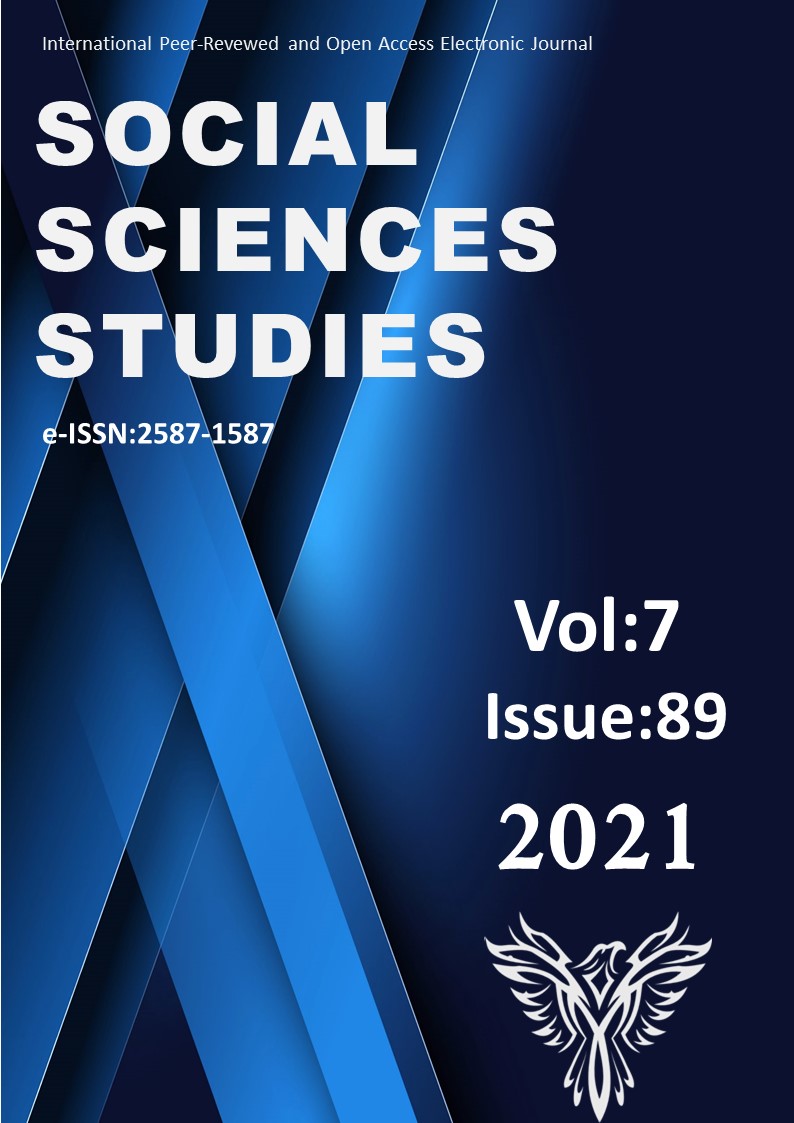Author :
Abstract
Halide Edib Adıvar'ın Vurun Kahpeye adlı romanı ulusal kurtuluş savaşı dönemini anlatan romanlarından ayrı bir yere sahiptir. 1923 yılında “Akşam” Gazetesi'nde bölüm bölüm yayınlanan roman, 1926 yılında kitap haline getirilmiştir. İdealist bir öğretmen olan Aliye'nin görev yaptığı kasabada bağnazlığa ve cehalete karşı verdiği mücadeleyi merkeze alan roman, Adıvar'ın istediği eğitim modelini keşfetmemize olanak sağlar. Adıvar’ın ideal eğitim modelinde genç nesillerin modernleşirken milli kimliklerini ve manevi değerlerini kaybetmeden yetişmeleri büyük önem taşımaktadır. Halide Edib, yalnızca askeri başarı ile elde edilen toprak bağımsızlığının, toplumsal ve kültürel alanda bağnazlık ve cehalete karşı kazanılacak zaferle pekiştirilmedikçe mutlak bir zafer sayılamayacağını öne sürer. Yazar, modernleşme ve aydınlanma sürecinde Millî Mücadele'nin eğitim odaklı yeni biçimine dikkat çekmektedir. Bu çalışmanın amacı, dış güçlere ve düşmanlara, bağnazlığa ve çağdışı kurumlara karşı kazanılan zaferin eğitim sisteminde köklü değişiklikler ve iyileştirmelerle taçlandırılmadıkça kalıcı olamayacağını göstermektir. Ayrıca memleketin bağımsızlığının ve özgürlüğünün, Aliye ve Tosun gibi milletini çok seven, bu uğurda kendi sevgisini ve hayallerini ikinci plana atan fedakâr kahramanların varlığına bağlı olduğu gösterilecektir.
Keywords
Abstract
Thrash the Whore written by Halide Edib Adıvar has a distinguished place from the novels portraying the period of the national liberation war. The novel was published part by part in “Akşam” Newspaper in 1923 and was turned into a book in 1926. Centred upon the struggle of Aliye, an idealistic teacher against bigotry and ignorance in the town where she served, the novel enables us to find out the education model Adıvar desires. In her idealized education model, it is highly important for young generations to be raised without losing their national identities and spiritual values, while they are getting modernized. Halide Edib suggests that the territorial independence achieved only by military success cannot be considered an absolute victory unless it is reinforced with the victory gained against bigotry and ignorance in the social and cultural sphere. The author directs the attention to the new form of the National Struggle, which is education-oriented in the process of modernization and enlightenment. The purpose of this study is to demonstrate that victory over external forces and enemies, bigotry and outdated institutions will not be permanent until they are crowned with radical changes and improvements in the education system. Furthermore, this study will also demonstrate that the independence of the country and the freedom of the nation owes a lot to such devoted heroes or heroines as Aliye and Tosun, who love their nation very much and put their own love and dreams in the second plan for this cause.





